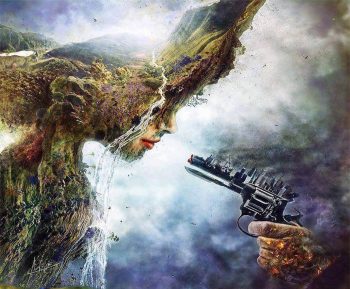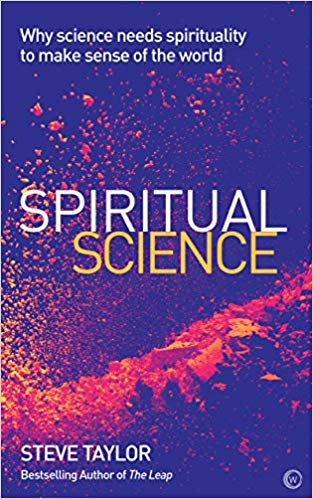Guest writer for Wake Up World
Eco-psychopathy: Our culture’s psychopathic attitude to nature.
For me, the most symbolic and significant political struggle (amongst many) taking place in the U.S. in recent times has been the fight to stop the Dakota Access pipeline running close to the the Standing Rock Reservation. This conflict is significant because it exemplifies a condition which I call “ecopsychopathy.” There are around 200 hundred classified forms of mental illness, and this is one I would like to add to the list. Ecopsychopathy can be described as a “lack of empathy, connection or sense of responsibility to the natural world, resulting in its abuse and exploitation.”
The inability to empathise is the major characteristic of psychopathy. Psychopaths are emotionally disconnected from other people, who are just objects to them. They have no “fellow-feeling,” no ability to feel pity or guilt. This makes it possible for them to commit acts of cruelty and exploitation which would be far beyond normal human beings. Since they have no feelings for others, there is nothing to stop them inflicting suffering on them, and exploiting them for their own devices.
This is a perfect description of our culture’s attitude to the natural world. Many of the world’s indigenous peoples feel a connection to nature which we “civilized” people seem to have lost. Indigenous people sense a sacredness in nature, feel that they share their being with it, and so are reluctant to harm it. This is typified by the Lakota holy man Black Elk, who said “Every step that we take upon the Earth should be done in a sacred manner; every step should be taken as a prayer.” And it’s also exemplified by the Sioux people’s opposition to the Dakota access pipeline.
On the other hand, the ecopsychopathic attitude of mainstream American culture sees nature as nothing more than a supply of resources. Natural things are objects. They only have value inasmuch they can supply us with raw materials. They aren’t alive, they aren’t sacred, and they don’t deserve our respect. We can’t empathize with nature, in the same way that psychopaths can’t empathize with other human beings.
The consequence of this disorder are enormous, massively outweighing those of any other psychological condition. On an immediate level, ecopsychopathy results in a degradation of our living environment which causes dislocation and unease. As the fields of ecopsychology and ecotherapy have shown, human beings feel a strong sense of connection to nature. We feel at home in it, because it’s been our home for hundreds of thousands of years. Contact with nature heals us. Lack of contact with nature harms us.
On a more macrocosmic level, ecopsychopathy threatens the survival of the human race. The end point of our exploitative and manipulative attitude towards the natural world is surely the complete disruption of the fragile eco-systems on which our life depends. This disruption is underway already, resulting in the mass extinction of other species (at a rate of a hundred per day, according to some estimates). And if it isn’t checked, human life will become more and more challenging, until we suffer cataclysmic consequences.
Indigenous peoples have always recognized that we suffer from ecopsychopathy, even if they would not have used that term. Almost from the first moment Europeans arrived on their shores, Indians were horrified by their exploitative attitude to the land, their determination to tear up the surface of the earth to piece in their search for resources and wealth. As Chief Seattle is reported to have said in 1854, “His [the white man’s] appetite will devour the Earth and leave behind only a desert.”
Perhaps all is not lost though. Fortunately, there may be one essential difference between ecopsychopathy and psychopathy. Most psychologists believe that psychopathy is incurable. But this may not be case with ecopsychopathy. Although our mainstream culture is afflicted with ecopsychopathy, there are many millions of individuals who do feel a strong sense of empathy to nature. As the protests at Standing Rock have shown, many of us feel as horrified by our culture’s systematic abuse of the natural world as Native Americans have always been.
Perhaps a cultural change is underway. Perhaps we are beginning to remember something that other peoples have always known: that we don’t live in the world, we are part of it. When we abuse nature, we are really only abusing ourselves. We are connected to nature, whether we’re aware of it or not. And our survival depends on being able to sense this connection.
Spiritual Science
Steve Taylor’s new book, Spiritual Science: Why Science Needs Spirituality to Make Sense of the World, is available now. It offers a new vision of the world that is compatible with both modern science and ancient spiritual teachings. Highly recommended reading.
About the author:
Steve Taylor is a senior lecturer in Psychology at Leeds Beckett University, UK. His latest books in the US are The Calm Center and Back to Sanity: Healing the Madness of the Human Mind. He is also the author of The Fall, Waking From Sleep, and Out Of The Darkness. His books have been published in 19 languages. His research has appeared in The Journal of Transpersonal Psychology, The Journal of Consciousness Studies, The Transpersonal Psychology Review, The International Journal of Transpersonal Studies, as well as the popular media in the UK, including on BBC World TV, The Guardian, and The Independent.
Connect with Steve at StevenMTaylor.com.
Recommended reading by Steve Taylor, Ph.D:
- The Secret of Success: Relax, Do Nothing… and Just BE
- The Power of Forgiveness: The Transformational Effect of Letting Go of Resentment
- More Than a Chemical Imbalance – Why Depression Cannot Be Cured By Medication Alone
- Harmony of Being – Returning to Our True Nature
- Transcending Time in Egoless States of Consciousness
- Transcendent Sexuality — How Sex Can Generate Higher States of Consciousness
- The Power Of Silence
- Happiness Comes from Giving and Helping, Not Buying and Having
- Empathy – The Power of Connection
- Transcending Human Madness
- If Women Ruled the World – Is a Matriarchal Society the Solution?

If you've ever found value in our articles, we'd greatly appreciate your support by purchasing Mindful Meditation Techniques for Kids - A Practical Guide for Adults to Empower Kids with the Gift of Inner Peace and Resilience for Life.
In the spirit of mindfulness, we encourage you to choose the paperback version. Delve into its pages away from screen glare and notifications, allowing yourself to fully immerse in the transformative practices within. The physical book enriches the learning process and serves as a tangible commitment to mindfulness, easily shared among family and friends.
Over the past few years, Wake Up World has faced significant online censorship, impacting our financial ability to stay online. Instead of soliciting donations, we're exploring win-win solutions with our readers to remain financially viable. Moving into book publishing, we hope to secure ongoing funds to continue our mission. With over 8,500 articles published in the past 13 years, we are committed to keeping our content free and accessible to everyone, without resorting to a paywall.










